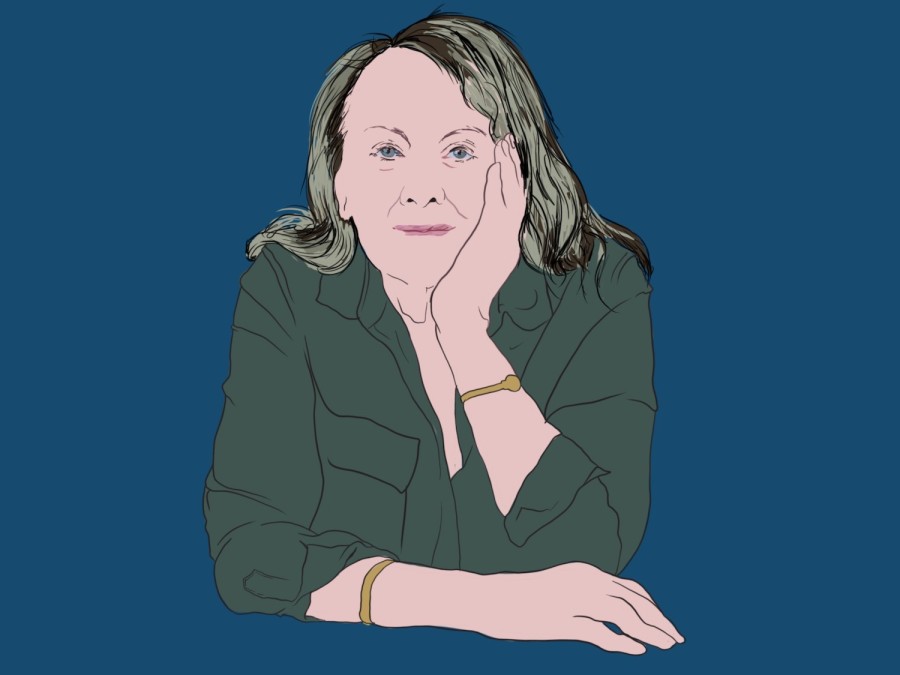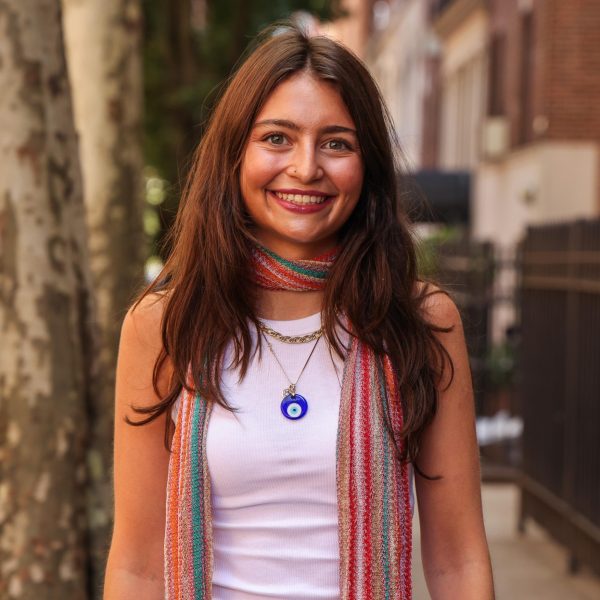Review: Annie Ernaux’s ‘Happening’ illustrates the necessity of reproductive care
The winner of the 2022 Nobel Prize in Literature retells her personal difficulties accessing healthcare in 1960s France.
Annie Ernaux is the winner of the 2022 Nobel Prize in Literature. (Illustration by Aaliya Luthra)
March 29, 2023
In October of 1963, a 23-year-old Annie Ernaux wrote in her diary, “I am pregnant. What a nightmare,” an entry later featured in her 2000 book, “Happening.” Though at the time abortion had been illegal for 50 years in France, Ernaux resolutely set out to get one.
Ernaux tells the stories of her life through short “lightly-fictionalized memoirs.” She has been writing professionally since 1974, and her works adopt personal perspective to tackle political problems. As the winner of the 2022 Nobel Prize in Literature, Ernaux uses memorable prose and heart-wrenching honesty as she explores class, gender and love through her personal stories. Whether it’s on abortion, like in “Happening,” or the complications of unrequited love, like in “Simple Passion,” Ernaux’s work transcends the boundaries of time.
In “Happening,” translated to English by Tanya Leslie, Ernaux’s diary entries take readers on her journey to obtain an illegal abortion. The book is written as a chronological retelling of this portion of her life, allowing the reader to take in the difficulties that women face when searching for help. From dangerous and painful home remedies to unhelpful doctors who saw women like Ernaux as a “constant reminder of the law that could send them to jail,” the book allows readers to sympathize with Ernaux’s despondent spirit. As she states bluntly, nobody wanted to help “some sweet chick foolish enough to get knocked up.”
Though Ernaux’s tale is not a recent one, in this day and age, “Happening” remains hauntingly relevant. With the June 2022 case of Dobbs v. Jackson Women’s Health Organization, the U.S. Supreme Court overturned Roe v. Wade, the 1973 case that established the constitutional right to abortion. Since the Dobbs decision, abortion has been limited or banned in 18 states. Countless women in the United States are currently dealing with the repercussions of this decision, despite the 60 long years that have passed since Ernaux’s travails.
Ernaux managed to terminate her pregnancy with the help of other women, but her story’s ending is not one of triumph — rather, it is one of exhaustion. Ernaux’s experience of being deprived of necessary reproductive care is traumatizing and tiresome, and the physical pain she endured throughout the months of desperation is heartbreaking. This is all on top of the sad realization that this experience is still possible today.
Toward the end of “Happening,” Ernaux writes, “Maybe the true purpose of my life is for my body, my sensations and my thoughts to become writing.” By recounting her experiences, Ernaux tells other women that they are not alone. Keeping in mind today’s state of abortion, it is important that we continue to listen to the stories of women who have lived through it.
Contact Alexa Donovan at [email protected].

























































































































































